Review: Sun War Trilogy

This is the second review taken from my Self-Published Fantasy Blog-Off first chapter read. You can read my first review here.
When words fail, bring out the guns, swords, and death spells.
It's a good start when an author shares your warped sense of humour. Just based on the tagline, I thought I might love the Warlock of Muscovy, the first book in Brien Feather's Sun War Trilogy. I did love it, and I loved it SO MUCH that I immediately read the sequel, Dragon of Akari. And, then, about a week ago, I read Alchemist of the Machines too.
Thus, I'm going to be reviewing all three books here - the complete trilogy.
The Alchemist Ship Groaned and Shrieked...
The first thing I loved about this book was the opening sentence/paragraph. It should be a writing guide somewhere, along with "it was a bright cold day in April, and the clocks were striking thirteen."

The first paragraph is just physical description, with no characters, but it's incredibly evocative, dynamic and intriguing. If we break this down, you're told:
- There's an "Alchemist Ship'. Immediately, you've got a question. What's an Alchemist Ship?
- And then, the very next word, you're told it's 'groaning and shrieking'. Why?
- And, then, you're told it's been prepared for a voyage after twenty years. Why not? And where it's going?

You can't help asking questions: Why are the crew dead, and being thrown overboard? Who is Marina? And what happened the previous night to make her bloodied and dirty?
This is an absolute masterclass in captivating the reader's interest from the first word, never mind the first line.
An grave insult to sofas
Obviously, having sparked my curiosity, the Warlock of Muscovy then caught my attention. Literally, the Warlock of Muscovy - the named character - who is called Alexander, who is found casually torturing a steampunk-esque guy to death while lounging on a hideous floral sofa.
I've got to admit to having hyperphantasia, a vivid visual imagination. The contrast between the horror of the torture and the ridiculousness of the sofa will remain with me for the rest of my life - and not in a bad way.
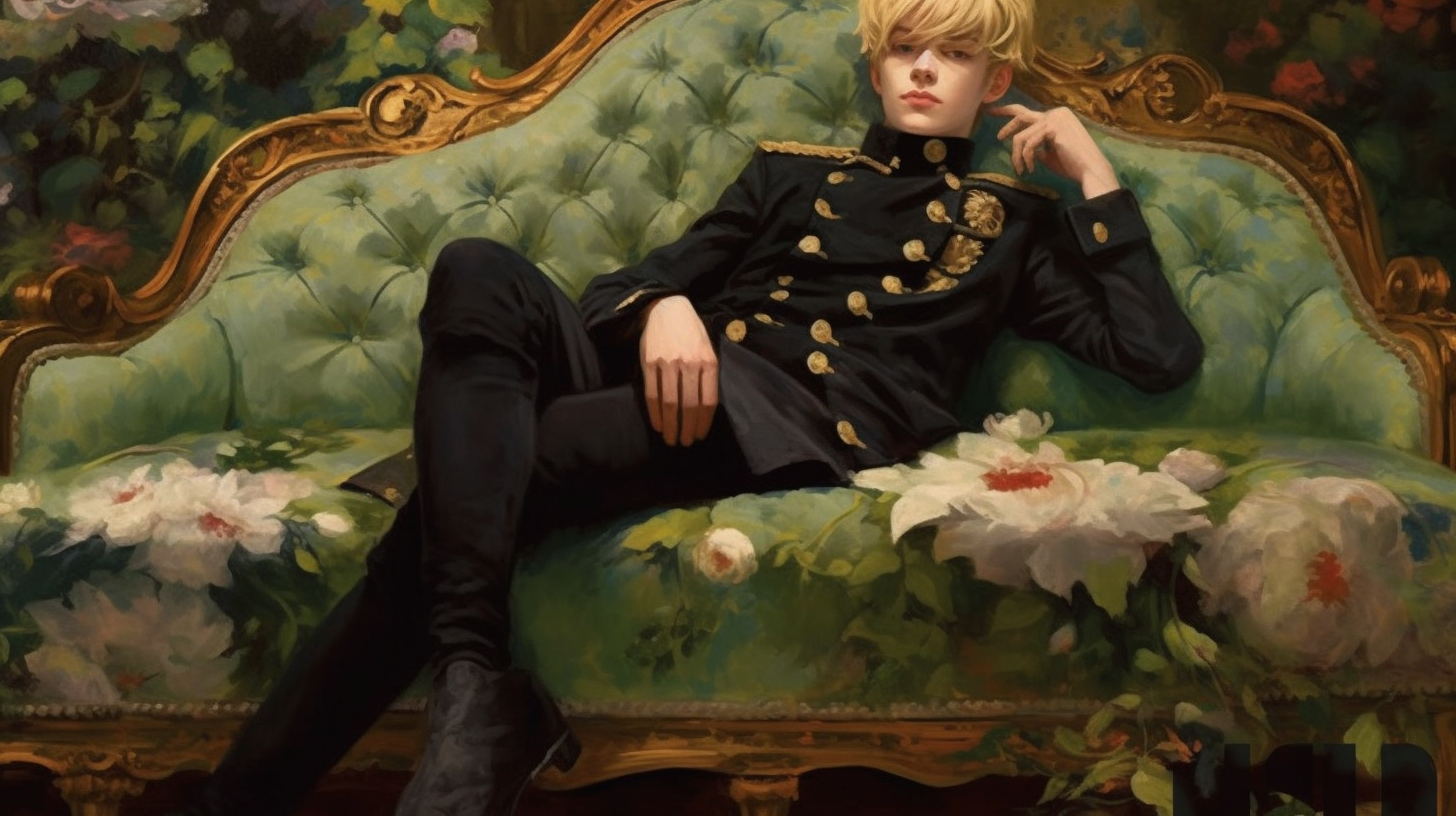
Thing is, you normally expect hideous things to be done in horrible places, such filthy dungeon, by ugly people acting with evil determination. But Alexander has his feet up casually, is younger-looking than his age, and although he's not described as attractive - he does have the same (beautiful, exotically) coloured hair as my younger son.

Getting thematic
The beauty of this introductory chapter (it's a prologue) is that it perfectly sets up the key themes of the trilogy. The first book is described as:
[an] intensely dark tale of magic and mayhem [...] full of grey characters that blur the line between good and evil.
Obviously, we've got some moral greyness straight out the gate. Is this Alexander justified (in any way) in torturing this man? He does complain that the man is an Einhart and all they do is 'lie, kill and scheme'. So, is he the villain? Or is the Einhart the bad guy instead?
Also, the entire trilogy is about the relationship between Alexander and Marina, his daughter. And this chapter is also entirely about... well, the troubled relationship between Alexander and Marina.
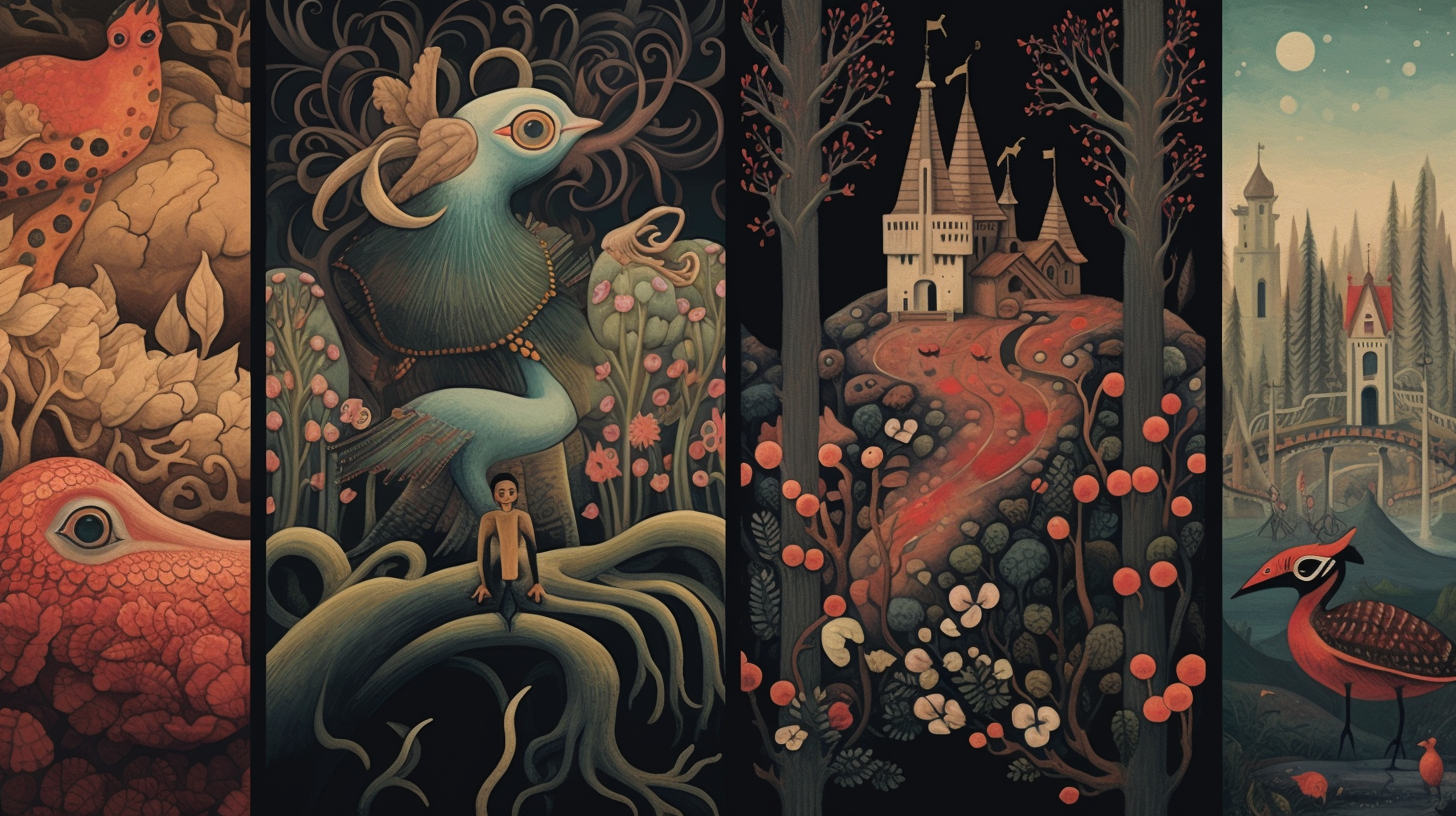
I think it's an amazing setup, especially because you don't understand the significance of the dialogue, but then the prologue reappears again - as Chapter Eighteen of Warlock of Muscovy. And, by this point, you understand EVERYTHING (almost).
The repetition of this chapter is just incredibly clever. You'd think it wouldn't work, but it 100% does. It's like rewatching a favourite film. The first time, you get the broad details, soak up the world-building... And then, on the rewatch, you get all the nuances and Easter Eggs.
Colour me impressed. On the double take.
Amazon Prime Video calling. Please commission this trilogy.
Now we've established that Brien can write her way out of a nuclear bunker (a paper bag sets too low a bar), I need to get into the elephant in the room. The Sun War Trilogy is described as Slavic Folklore Inspired Dark Fantasy. And some racist fuckwit (no offence) on GoodReads gave it one star, describing it as a 'fanfiction' of Leigh Bardugo's Grishaverse.
I say 'racist fuckwit', not a term I use casually, because the Sun War Trilogy has almost no resemblance to the Grishaverse (I have read Book One, Shadow and Bone, and watched the Netflix adaptation) - except that it isn't set in your usual cod-medieval western European fantasy setting.
The best thing in this series is Ben Barnes as a sexy evil warlock. And the Six of Crows, which are apparently in a related book series (I only read Book One of the Shadow and Bone Trilogy)
Sorry, you racist fuckwit, it's not the Grishaverse just because it's set in a Russia-like setting for the same reason that not everything set in Japan was directed by Studio Ghibli. I mean, the Sun War trilogy does have a veil/fold/magic wall, but so do a bunch of other fantasy books in the SPFBO9. And it features a powerful magician, but, erm, so does ALMOST EVERYTHING ELSE in fantasy.
Directed by Studio Ghibli. Or, maybe not. Honestly, people...
I'm going to add here that Iron Harvest/Scythe also have a Slavic-inspired setting (the artist is Polish) and aren't the Grishaverse (or Sun War Trilogy) either. I've not played the video game Iron Harvest, but Scythe is a brilliant complex strategy board game and I'd recommend it heartily.
Gratuitous Iron Harvest trailer inserted here (for the giant mecha).
Thus, I can say nothing to that reviewer except: 'Fuck off. Then keep fucking off. Fuck off until you come up to a gate with a sign saying “You Can’t Fuck Off Past Here”. Climb over the gate, dream the impossible dream, and keep fucking off forever' (hat tip).
With all these other Slavic-inspired settings out of the way, I'd like to request that Amazon Prime commission a series based on the Sun War Trilogy. Not Netflix, however, because they cancel series too quickly - and the one thing I'd like to say about the Sun War Trilogy is that the TV series wouldn't be an instant mass sensation, but it would become a slow-burn cult hit.
This is, for some reason, the first thing that comes to mind when I think 'cult classic with slow-burn success'. I also LOVE this piece of music - less so the film, actually.
This is because, unlike the Grishaverse, it isn't a Russia-themed rehash of every Young-Adult love-triangle and/or magical-academy book written since Harry Potter and Twilight. It is highly original, and that's something that needs time to find it's audience. I found it exponentially better than the Grishaverse (I only read one book from that universe). In fact, it's totally rad throughout. And here's why.
It is just INCREDIBLY imaginative.
Let me explain. After that amazing prologue, we go back in time with Marina to a largely non-magical mundane Soviet setting. It's pettily authoritarian, and the day-to-day crappiness of nasty communist dictatorships is lavishly described. We find out that this is the People's Republic of Muscovy, but the Tsardom persists - protected behind a magic wall called the Veil (which isn't a big dark ocean of hungry (brainless) monsters. Because this isn't the fucking Grishaverse, you utter fuckwit of a one-star reviewer).

Anyway, the book chunters on through Marina's day-to-day life as a seamstress in a communist factory and her relationship with her sort-of boyfriend, Yuri, who works for the political police. He has a large cock (apparently) and there's a delightfully unromantic sex scene somewhere about 9% through where he just throws her up against a wall, and fucks her there. Yay for (thankfully) short, weirdly-realistic sex scenes.
Let us continue. We find out that Marina is non-magical, but her father is actually the much-hated Tsar, who is also the powerful wizard who erected the Veil as he lost the war to the Reds. She's run away from him, across the veil, along with a changeling disguised as a talking cat - the only really magical element at this point in Book One.

And, then, suddenly, there's an attack on her town by the Alchemists, who are the steampunk magitek people-with-cannons-for-arms country/faction in the setting. In the horrific aftermath of this destruction, Marina's life is disrupted and, along with a tide of refugees, she begins to flee back towards the Veil - and her father, the Tsar, Alexander the Cruel.
Enter on a Broomstick... Stage Left.
Just after this point, about 51% the way through the book, she is abruptly rescued by a witch (on a broomstick). Suddenly, we get a complete step change - from a brutally realistic-seeming World War II-esque world to Slavic folklore, in the time it takes for a broomstick to swoop through the magical Veil.
Then, then gets REALLY weird. Whether it's the four-eyed owl that I can't forget (and Midjourney image AI can't draw) or the Baba Yaga chicken hut on legs, we are in a delightfully-different setting. We are now in the crazy fairytale remnants of the Tsardom of Muscovy, across the Veil from the mundane People's Republic, and the whole setup is INCREDIBLY weird.

I'm not going to spoiler everything else, especially the plot (such that it is... I'll get to that, shortly). I'm just going to say that, if this sounds unbelievably interesting so far, you will likely enjoy this trilogy as much as I did.
BUT... All Hail the Last Psychiatrist, and their Military Power
And here comes the bit where, if this was a No Pun Included board game review, I would shout BUT... as I explain all the stuff that I didn't feel worked, or which just made me think (a lot) in a trilogy that I otherwise devoured, literally in hours, like it was a giant chocolate fudge cake.
As with my review of Obsidian: Awakening, my intention isn't to rundown Brien Feathers, or say the books were bad; the trilogy is a clear 5.0 for me on GoodReads. However, if the weaker areas had been bolstered, it would be a solid 6.0 (which doesn't exist, of course) along with my favourite fantasy series of all time, such as the Empire Trilogy by Janny Wurts/Raymond E. Feist. As I'm learning about writing fiction myself, it's useful to understand why a trilogy I loved this much didn't work (for me) in places.

The first thing to say is Sun War Trilogy was entertaining throughout. There was never a dull moment. However, and this is a big HOWEVER, the plot of Warlock of Muscovy and Alchemist of the Machines can be summarised, pretty well, as 'Marina runs away'. The Dragon of Akari's plot can meanwhile be over-simplified as 'Alexander falls in love with a beautiful Prince of the Akari (the Akari are the Chinese-themed faction in the setting) while taking orders from a sentient sword'.
Why Marina ended up running away, I think, is that, being largely non-magical, she was outgunned by literally EVERYTHING.
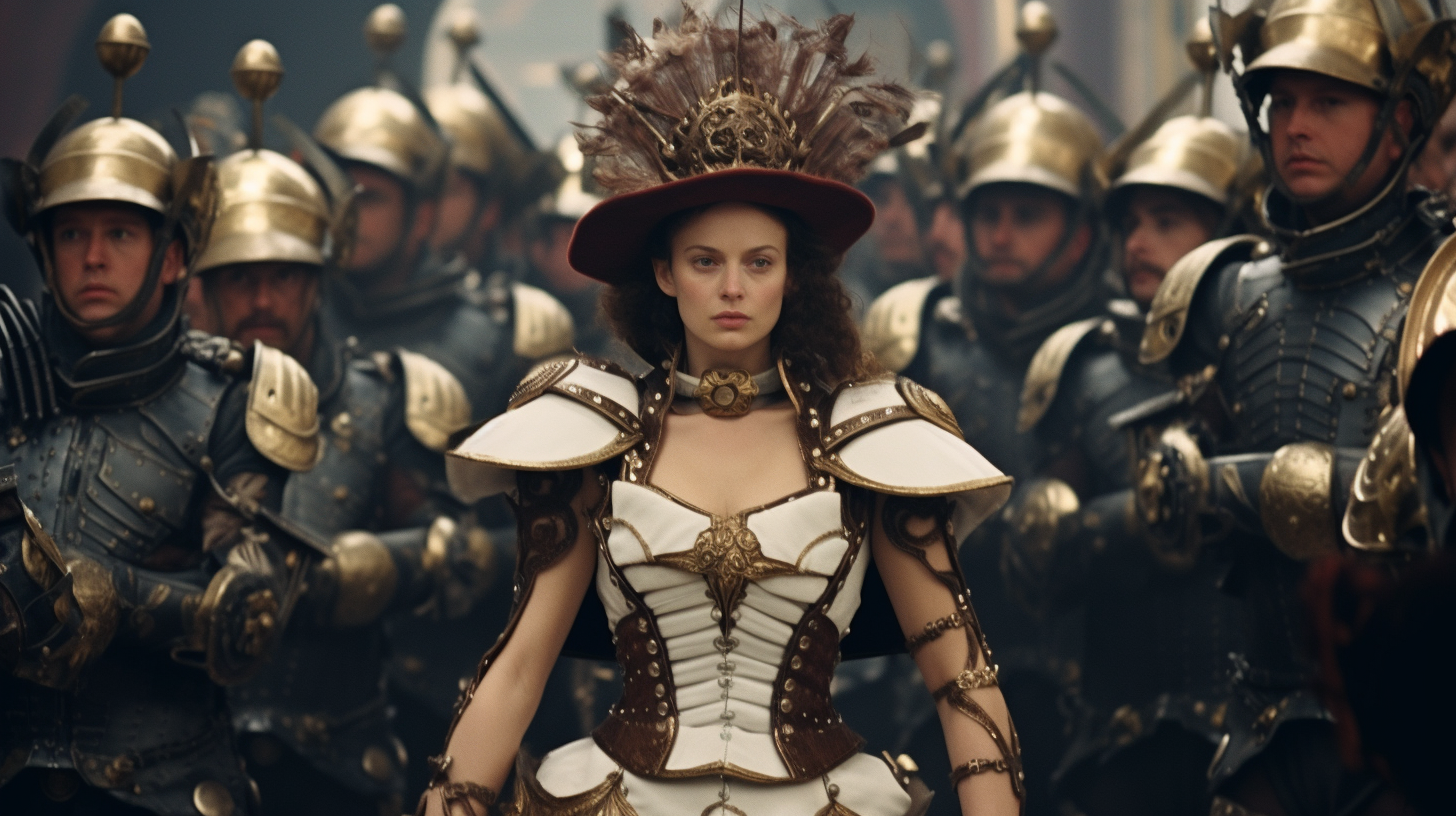
This meant, if the following turned up for a throw-down:
- Three witches, a couple of werewolves, and Alexander with a sentient telepathic sword;
- A man with cannons for arms controlling a transmutation circle;
- The Soviets (with machine guns and a military truck);
- Two Chinese girls riding on a giant flying fan using water magic, and;
- Queen Elizabeth 1st with a bustier, no skirt, and the Aperture Science portal gun ability.
The ONLY thing Marina could do was run like heck… or, occasionally, hide behind a car with a rifle (or perhaps holding a grenade).
Added to this issue, she wasn't remotely ambitious either. Even when she had the opportunity to use magic to take better control of her own life, she extravagantly chose not to take it.
Lots of war goes down in this trilogy
As such Marina's plot journey largely consisted of fleeing scenes of destruction, being kidnapped/captured (often because she was Tsar Alexander's daughter) and, then, being rescued again by her boyfriend, her father, and other family members (from Muscovy and elsewhere).

In fact, the only active decision she makes in the entire trilogy is not to be personally ambitious. Her character is motivated entirely by her love for her family (which is fine), and the decisions she does make are also about love/family (which is realistic). But, even then, she often didn't necessarily actively do things to pursue those goals. She often made no effort to plot, plan or make a serious attempt to escape captivity.

There was a perplexing period in Alchemist of the Machines where she spent ages milling around a destroyed palace with her dog, looting it for food, until the enemy turned up. And, even then, she just sat on a box, waiting for them, and then milled about, casually chatting, as they did their own thing. I was baffled by why she didn't just leave. It was almost like she had bad PTSD from the attack, such that she didn't seem able to engage in self-preservation.
I kept thinking, is this realistic? And, speaking as someone who has given birth (twice), been badly bitten in a dog fight, hospitalised with internal bleeding after an abdominal surgery went wrong while I was awake on the operating table, and who evacuated my elderly mum from London in March 2020, a week before the UK locked down... the ordinary human capability to make reasoned decisions in extraordinary circumstances is remarkably high.
The thing is, Marina wasn’t badly characterised. Other characters with point-of-view scenes (especially her boyfriend, Yuri), seemed to find her behaviour perplexing too. Eventually, I decided this was just her personality.
Why Marina is like Katniss Everdeen...
Marina's lack of agency didn't dramatically affect my enjoyment of Warlock of Muscovy/Alchemist of the Machines; there are many famous good books with the exact same issue. In fact, there's a whole Last Psychiatrist blogpost analysing how Katniss Everdeen, the heroine of the very-successful Hunger Games series, also has no agency, and how other female characters also get stripped of their agency, even in purportedly feminist works.
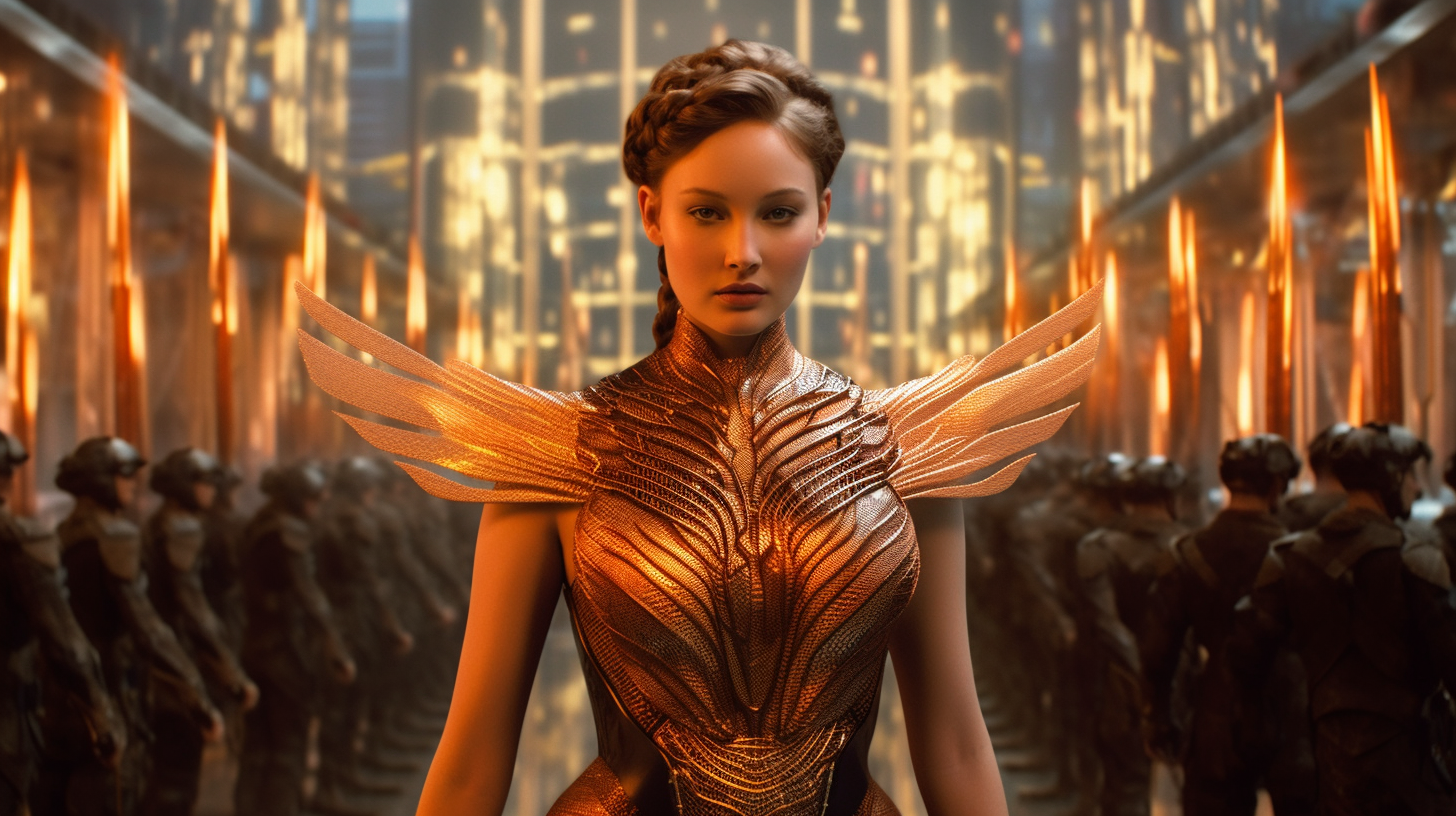
Interestingly, after reading Alchemist of the Machines, I realised I'd inadvertently stripped one of my own female characters of her agency in my Usfani War Series, which I'm currently writing. I'd written my female mercenary pilot drifting into taking a job, running away when it went sour, joining an airforce where she was given orders (by men), and then being backed into a pivotal action at a crucial moment. The actual power force in the novel, i.e. the person driving the plot, is a man who mostly acts off the page.
Happily, I've now revised my entire outline to give him more screen time and her much more agency. The chapters that I haven't written (and the ones I have) look dramatically more vibrant, as a result.
Who DOES have agency in this trilogy?
Well, not Alexander... When I first saw Tsar Alexander the Cruel, Warlock of Muscovy, in the amazing prologue, he reminded me of Tirim Kraygor, who is the antagonist/villain of my Usfani War Series (and probably my favourite fictional character). Tirim is also an oddly boyish-looking young man with occult powers, a pseudo-opioid drug habit and a penchant for torturing people while sprawled casually across furniture.
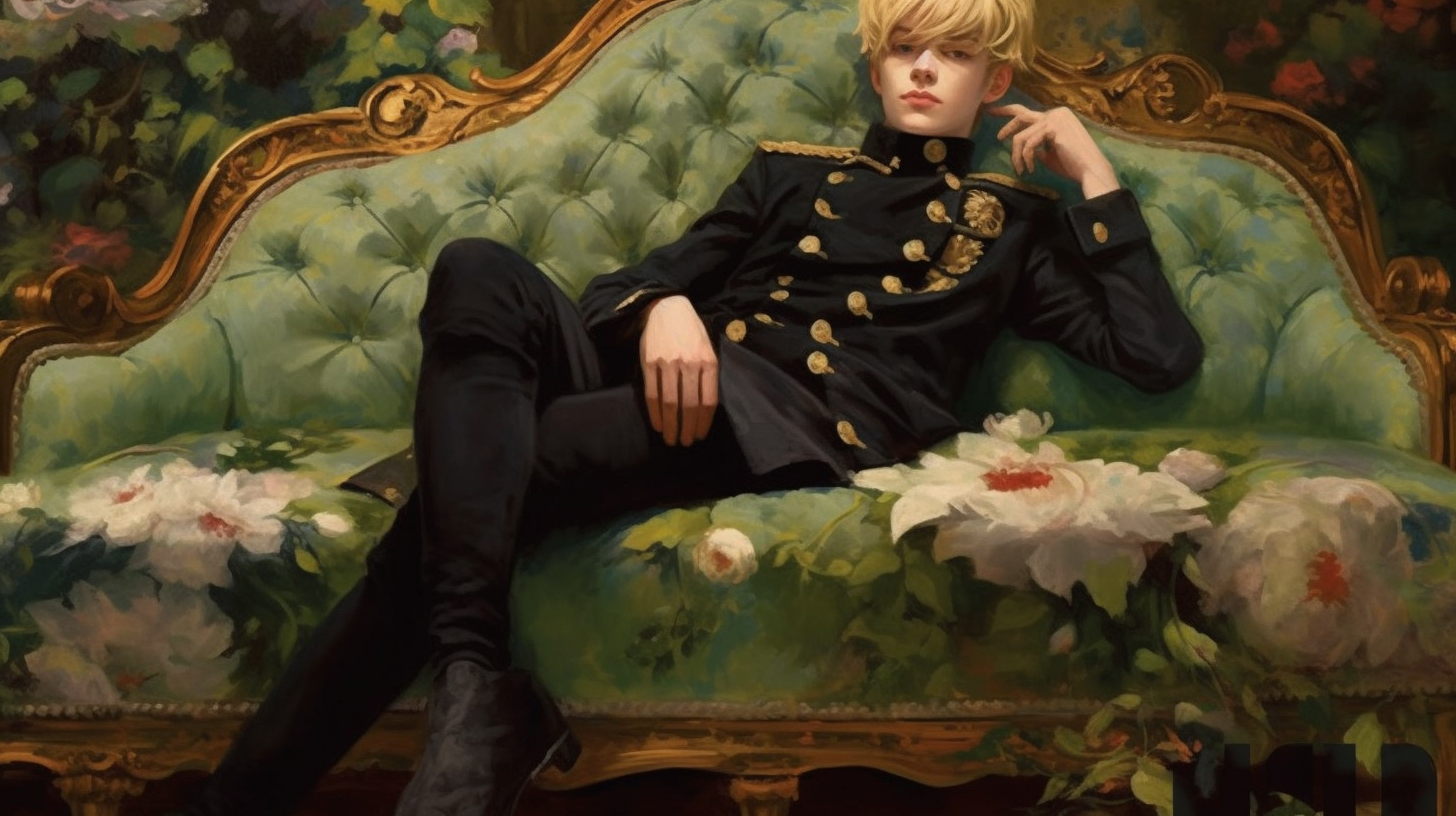
However, as I read on, the resemblance ended there. Tirim Kraygor, the Archduke of Belorn, is a very, VERY active character in the novel I'm writing (and the novella I've written that needs editing). When sober, my Archduke is super-smart and machiavellian, utterly driven and hard working to the point of emotional breakdown. His drug (and alcohol) abuse is largely driven by the fact he would (in our world) unquestionably attract an autism diagnosis**, and his sensory issues and the effort of masking autistic traits while engaging in a campaign of world domination periodically causes him to flame out - often quite dramatically.
In contrast, Alexander just isn't a functional adult. He begins the series with (well-written, in my opinion) clinical depression. As a result, his relationship with Marina in Book One is a familial, rather than romantic, version of Howl and Sophie's relationship in the Studio Ghibli film Howl's Moving Castle. He's an incredibly powerful magician who is too depressed/drunk/high/emotional to open an envelope (metaphorically speaking), and she's acting as his mum.
I've got to say, Howl's Moving Castle is one of my favourite films. Thus, having characters compared to Howl and Sophie is not an insult - it's just a commentary on the type of people they are.
Even when he emotionally rallies (and sobers up) later in the trilogy, he's still all over the place. That's his actual personality - Marina even comments on it.

It's a true testament to the sheer quality of Brien Feather's writing that I finished the Dragon of Akari within hours (and looked for the sequel) despite spending the first half of that novel wanting to grab Alexander by the lapels and shake him repeatedly for being a lazy, indolent, overprivileged idiot, and the second half wanting to march into the book and scream repeatedly into his face.
During the first part of Dragon, he drifted about, lovestruck, emo and beautiful, insulated by privilege from the effects of the Tsardom collapsing around him, motivating himself only later under the influence of the sword, all with the pathos of the protagonist of a really good literary novel. The characterisation was thus excellent, moving, powerful and realistic – but, the personality of this imaginary person irritated me so much that I wanted to hurl him out of a ground-floor window, in the hope of inspiring him to be less ineffectual.
And here we get to the magic...
Much like Howl's Bad Hair Day, Alexander's an utterly impractical, dippy character enabled by powerful magic. More of a fairytale sorceror rather than a ruling monarch (I'm sure I read an author interview with Brien where she said the series began with the fairytale elements (?)), he doesn't need to make logical sense. After all, no one asks how the witch in Hansel and Gretal manages to stop her gingerbread house getting unacceptably soggy and mouldy when it rains.

His actions within the plot don't make a lot of sense either. When he's not prompted to act by an external force, he mooches around various Tsarist palaces, taking drugs and engaging in mercurial weirdness. He doesn't seem to plan anything, and no one in his fantastical court of werewolves and witches seems to expect him to make plans either. Instead, they all just explode impulsively into action and rely on his/their ultra-powerful magic to make everything okay.
In short, he doesn't actually have much agency. And I kept wondering why he had been nerfed, in terms of his ability to actively control events. He is a bloke, after all, so it's obviously not the Last Psychiatrist/Kathniss Everdeen effect...
And then it occurred to me... Power Balance.
Let me explain. Last week, I watched Dr Who special 2023 episode, The Giggle. This features The Celestial Toymaker, a galactic-scale entity able to control the fabric of time and space. The Toymaker can travel instantly across centuries, open doorways in space, and - as Dr Who points out to fictional human military organisation, UNIT - there's no point fighting him. He's simply too powerful to defeat by conventional means.
This scene with UNIT -vs- The Toymaker in Dr Who, The Giggle, is just amazingly great fun and - adjusted for tech level - would NOT be out of place in The Sun War Trilogy.
The beauty of The Sun War Trilogy is how incredibly imaginative it is while, at the same time, possessing such warmly human relationships between Marina, Alexander and other characters. However, this comes at a cost. Some of the characters, including Elijah the teenage Architect, Queen Mary Fairchild, and Tsar Alexander himself are so crazily overpowered with magic that they give The Celestial Toymaker a run for his money.
At one point in Alchemist of the Machines, Queen Mary Fairchild appears to open a door in reality - in some similar way to how The Toymaker does above - and, wearing a tall wig, low-cut corset, knickers and a long train, plus full makeup, strides straight into another country's war meeting held in a mountaintop fortress. Subsequently, in a later chapter, she uses the same ability to flood an entire fleet of industrial-age warships - singlehandedly defeating an invading navy.

It's really helpful that she seems incredibly indolent, and interested largely in (off-the-page) orgies. Because, if she was even as megalomaniacal as the average municipal politician, with those powers she would have singlehandedly made a desert of the entire setting and called it peace.
Needless to say, Tsar Alexander COULDN'T have strategic planning abilities. Because, if he did, the Tsardom would never have convincingly fallen and, if it had, the People's Republic of Muscovy would be an ash-filled wasteland inhabited by Reds dying of penis gangrene (don't ask).
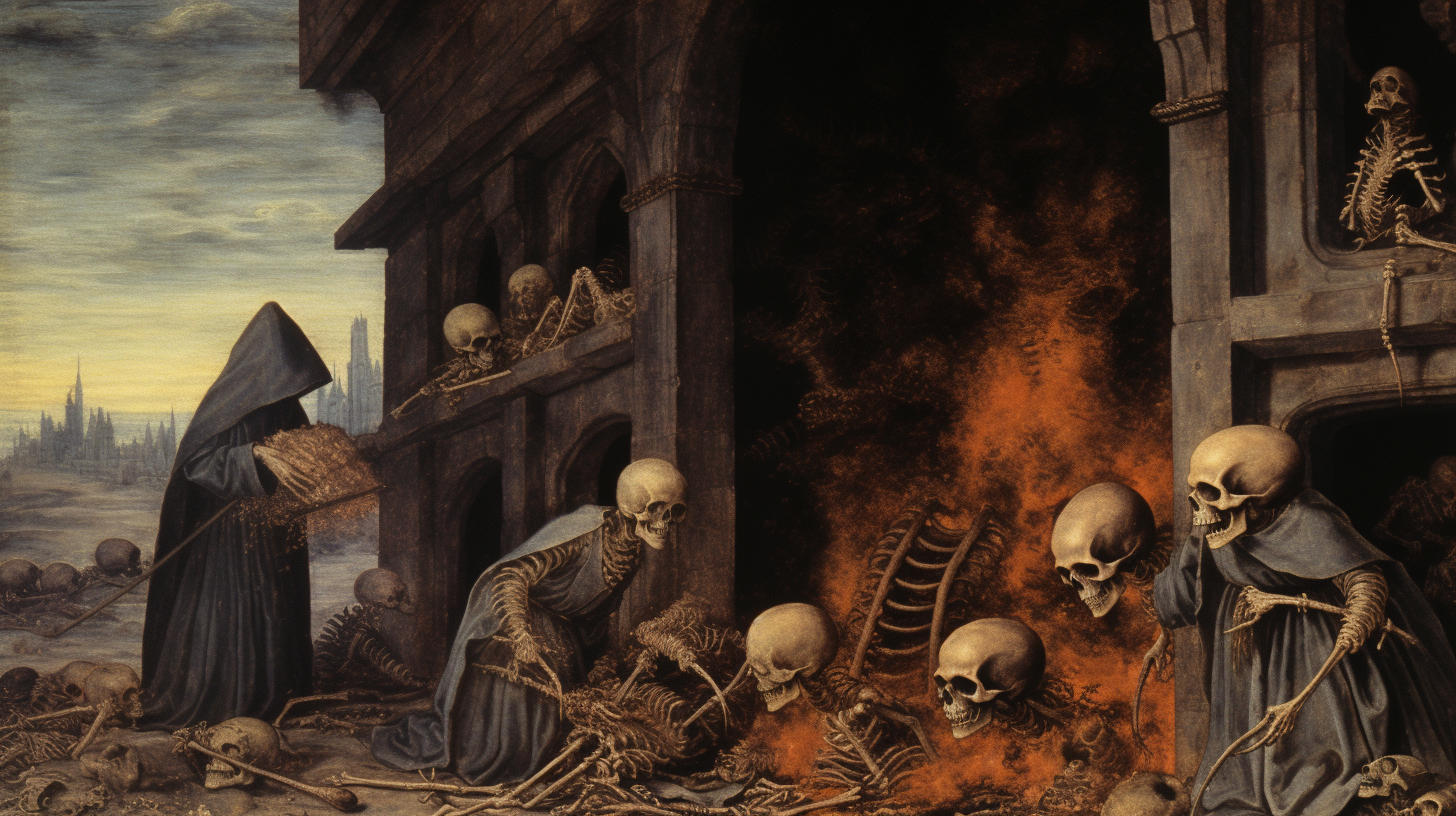
What is my problem? What did I want instead/as well?
Well, imagine any video game war series with multiple playable factions. Let's take Warhammer Total War, as a fantasy example. All the playable factions are balanced against each other and, when they have a battle, you expect the Chaos Dwarves, Tzardom of Kislev, demons of Slaanesh and Nurgle, and Grand Cathay have similar chances of winning - despite very different-looking military units.
I kept wanting the Sun War Trilogy to be more like a gaslamp version of Warhammer Total War. I'd almost have loved the factions to be written as playable in a real-time strategy game. I wanted to know how powerful three witches on broomsticks were when deployed in combat against an Alchemist with a magical cannon in place of his arm. I wanted to have Tsar Alexander deciding, as part of the plot, whether to deploying two werewolves or a legion of mundane tanks in battle against the Alchemists, and for this to be an actual decision with plot-changing consequences.
In short, I wanted the battle sequences to have some kind of magical rules or strategic military logic behind them - rather than just being the colourful, chaotic backdrop to Alexander saving his daughter, or Marina running away. It is a trilogy themed around war, after all, so it would be nice that we saw characters in positions of power making decisions about the course of the fighting - rather than just impulsively showing up in person to chuck overpowered magic about.

It just feels such a waste that Alexander, in particular, never got to make those decisions despite appearing in Alchemist of the Machines to have executive control over what remained of the Tsardom's military. Not just because I'm a weapons geek, but also because the consequences of him making bad decisions, as a commander in wartime, are so powerful in terms of his possible character development. Did a poor decision lead to avoidable deaths? The loss of strategic objectives? The end of long friendships with commanders now dead?
Having battles written with some consideration of military tactics would also been a great opportunity to show how the technologies and magics worked. What was happening, what the stakes were, and why specific characters were involved - beyond them being the six werewolves loitering around Alexander's palace as the fighting kicked off. As it was, Marina, Yuri and Alexander's stakes were well established, but the actual military campaigns were a mess - just a mass of people throwing magic at each other, devoid of any sense of physical distance and terrain, power levels, strategic objectives or unit strength.
In conclusion...
I think, if you've read this far, you'll know if it's a series you want to love. I personally think it's amazingly great fun. I loved these books, and the only thing that would have made it better is managing the power levels of the characters/technology to make it easier for Alexander and Marina to have agency. The only author I can think of who managed to maintain agency for mundane characters in a world of overpowered magic/technology is Iain M. Banks in his Culture novels.
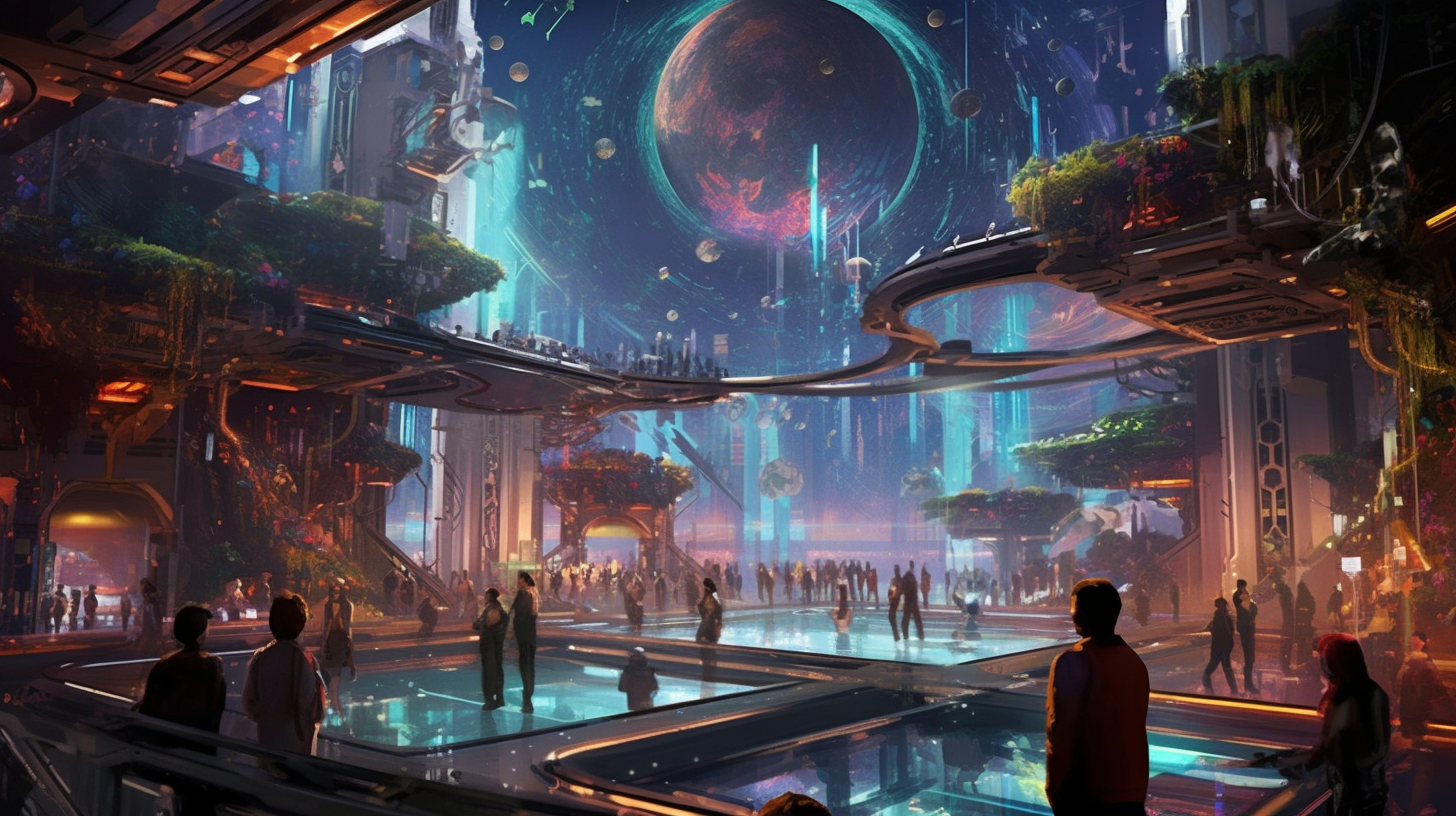
In the Culture stories, humans live in a futuristic post-scarcity society run by super-intelligent AI 'Minds' and, yet, Banks still manages to write compelling plots where 'ordinary' people decide how they fulfil the Minds' wills. Admittedly, he mostly does this by writing about Special Circumstances - the Culture's secret intelligence-style organisation that works with less-advanced galactic civilisations. But, nonetheless, he does largely solve the problem.
He's also a very VERY famous author and his Culture novels are almost genre-defining. Asking Brien to do this in a fantasy setting is almost asking her to shoot for the stars - but let's all be ambitious.
Heartily recommend the Sun War Trilogy. A lot. Very much. As evidenced by the vast essay I've just written!
** NB: According to Brien Feathers' Amazon profile, her youngest son is autistic. My older son (currently aged seven) is also autistic.
...And finally...
Scroll on down for little niggle with a massive spoiler for the end of the trilogy.
.
.
.
.
.
.
.
.
.
.
.
.
.
.
.
.
Last year, I read Elisa Kova's Air Awakens series (review buried in this post). Like the Sun War Trilogy, it's a story about the personal relationships between two characters stuck in a continent-spanning fantasy war. Unlike Alexander and Marina, however, Aldrik and Vhalla are romantically involved.
The problem with Air Awakens, which is otherwise good, is that the ending of the series is great for Vhalla - but terrible for the setting. The last book ends with her marrying Aldrik, who is now Emperor Solaris, and becoming Empress. A great ending for her, but not a happy conclusion to the series. You see, Aldrik's father, the former emperor, brutally created his empire by conquest and Aldrik shows no sign of being a nicer person.

Sun War has the exact same problem. I can't find the link now, but Brien wrote somewhere that she planned for the white rose (i.e. the Razumov dynasty) to fall, but Marina - the character - fought her for a different ending. Well, of course she did.
ALEXANDER IS HER (adoptive) FATHER.
Trouble is, he's also a mercurial wankpuffin. He's cruel, repeatedly, throughout the trilogy - starting with that torture in the prologue - and he doesn't get any more pro-social as the books go on, just less depressed. Thus, when Marina makes the decision near the end of the series to save him, she condemns everybody already living in the Tsardom to continue under the rule of an overly-powerful cockwomble with no common sense or responsibility, and at least thirty years of natural life ahead.

This is... NOT a happy ending.
I mean, it is for her, but not for everyone else.
Please, please, folks. If you're going to write a character like Alexander, at least have him abdicate near the end. Onwards, comrades! Honestly, that ending is enough to make me support the People's Republic of Muscovy!
